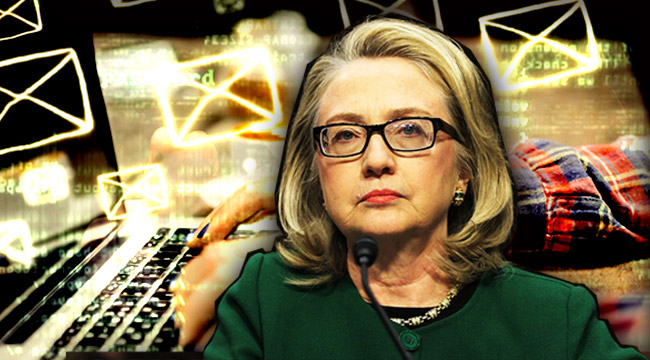
After more than a year of chatter and investigations, Hillary Clinton has not been charged with any crime in relation to using her private email server for State Department business. But many are left wondering why she did it in the first place, and just why it was a problem. The short answer is that in a quest to avoid scandal, politicians are increasingly turning to private email servers and webmail accounts, and opening the door to a digital security nightmare.
Why Hillary Was Investigated
To some degree, this all could have been avoided if somebody had taken the time to explain basic computer security to Clinton. Clinton, before her appointment to Secretary of State, was using a Blackberry and a private email server to conduct personal business and wanted to keep the convenience of using the solution she’d already had set up. So she did, even though she was warned it wasn’t secure, although she did request the NSA set up a more secure email server, which they denied.
The case came out thanks to a mix of factors, including the famous Texts From Hillary meme, when a government official noticed Clinton should have been proscribed from using a Blackberry during her time at the State Department. But it likely would have broken either way, as emails to Clinton from former aide Sidney Blumenthal were leaked, and suddenly people cared, deeply, about governmental records law.
The problem, though, is that while Clinton’s use of a server is a bit unusual, use of private email accounts is not unusual on both sides of the aisle. Sarah Palin, Mitt Romney, Kansas governor Sam Brownback, Tennessee governor Bill Haslam, and a litany of others, Republicans and Democrats alike, use private email accounts and servers all the time. And they all do it for the same reason they allege Hillary Clinton did: To evade the Freedom of Information Act.
Why Hillary Isn’t Unique
Anything generated by a federal government employee is owned by the people of the United States and is freely accessible within certain standards. After all, it’s stuff we’ve paid for. And, in 1966, Lyndon B. Johnson made these records more accessible by passing the Freedom of Information Act, or FOIA, and many states have similar laws on the books. All you need to do, in theory, is file a request under FOIA and you can go through the email of any politician you like, although the top secret parts will be blacked out.
The problem, at least if you’re a politician, is that it means anybody with the time can read anything in your email that’s not “classified.” But private email accounts aren’t subject to FOIA. In theory, you’re supposed to transfer any emails that involved government business to government servers within twenty days of sending them, a law passed in 2014, but that’s difficult to enforce, forget track.
An added problem is that nobody knows what’s classified. Obama streamlined what’s defined as “classified information” in 2009 and it’s still vague at best. Much of what Clinton shared over her email server wasn’t marked as “classified” until after the fact. This creates a handy loophole that politicians exploit constantly, and it sets the stage for a much larger problem.
Why You Should Be Concerned
Personal email accounts were never designed to hide any sort of secret, really. Passwords are notoriously bad security, so much so Microsoft has been banning passwords lately for being too dumb to use, and that’s really the only form of security protecting anything you send over email. This is why it’s inadvisable to put your credit card or Social Security number in an email, forget state secrets.
Even when government authorities have help, they make terrifying mistakes. An audit of government security practices found, among other things, that the Nuclear Regulatory Commission left the security plans for nuclear plants sitting on a drive that didn’t even have a password. Add to this that hacking is such a commonplace problem, the FBI has charged several members of the Chinese military with crimes, and you have a security disaster just waiting to happen. In fact, the Hillary email scandal unfolded in part thanks to a hacker breaching a private email account not related to Clinton.
For all the wailing and gnashing about Hillary and whether or not she committed a crime, the real lesson — that government figures need to be more accountable and stop evading federal transparency laws — has tellingly been ignored by both sides of the argument in Congress. Clinton shouldn’t have used a private email server to conduct government business for any number of reasons, but it’s worrying that as far as politicians are concerned, what’s a crime for Clinton to some is just fine for others in office.
